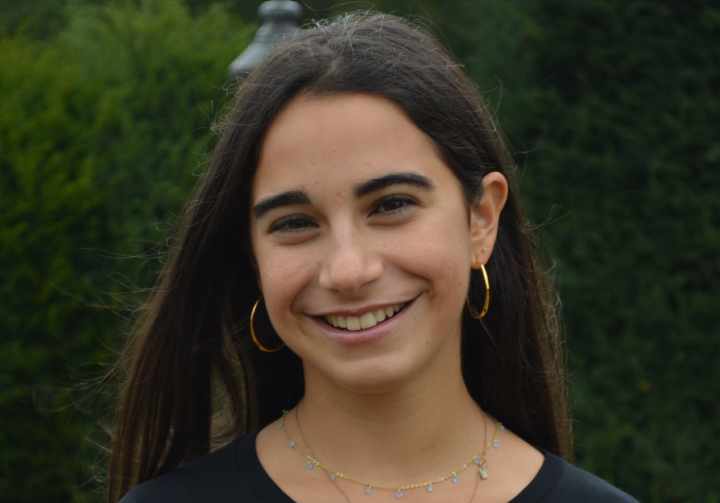Anya Myers, an 18-year-old student at Edinburgh University, took part in virtual work experience at Quilter, a provider of advice, investments and wealth management. Here, she explains why she applied - and what she got out of it.
What appealed about Quilter’s virtual work experience?
I applied as I’ve never really been introduced to financial management or financial services before. My family’s professions are based in the more medical and legal fields, so the chance to open my eyes to new job prospects was intriguing.
How did you apply for your virtual work experience placement?
I had to send in my CV and take part in a video interview. The interview comprised two questions: first, “tell us three reasons why you would be suitable for the job” followed by “do you prefer cats or dogs?”
The way it was conducted was more friendly than challenging and the second question certainly made it entertaining. It was very easy to take part.
Which subjects did you study at school? Do any relate to a career in financial services?
For A level, I studied history, Spanish, French and maths. I have since carried forward history and Spanish for my undergraduate degree at the University of Edinburgh. The only subject I could safely say supported the financial services would be maths. However, in terms of history and Spanish, I’m learning the skills of analytics, critical thinking, fast-paced reading and the ability to process lots of data in a short amount of time. Languages teach me empathy and an understanding of others and their cultures. I believe that all these skills are and should be useful in the financial environment.
What did the virtual work experience entail?
This experience was entirely online due to COVID-19. It was a 9am-5pm working day and was very well structured with a clear timetable and a few breaks. The week mainly involved live webinars.
It really did depend on the presentation skills of the presenter; the more engaging the speaker, the more interesting the talk.
The webinars that were skill-based, such as teaching us interview tips or CV skills, were a lot more interesting and engaging generally, as they required participation.
Could you give examples of practical tasks you undertook and any skills this helped you develop?
The week also comprised 10 hours of a team task. We were grouped into teams of five to film a five-minute video with a given title. My group was given the question “why should you hire a financial manager?”. I did find this an enjoyable task, especially because I have a lot of experience in video editing and it’s something that I enjoy.
However, not being able to meet my team in person but over Zoom, and trying to gauge personality and engagement, was a lot harder online. The task helped me to develop leadership skills as although I was not designated group manager, I ended up leading the team as I had to do the editing and therefore needed to advise the group on what was necessary.
The other practical element was watching the lectures from the school of financial planners and taking the tests. This not only helped me to learn about the financial planning by having to immerse myself in the actual business skill but also gave me greater insight into whether this would be the career path I would want to pursue. I definitely think this part of the week was the most beneficial as it forced us to learn about financial planning through the exam setting, allowing us to see if it would be for us.
What did your virtual work experience teach you about jobs in finance and your own career aspirations?
It taught me that there is a far bigger range of jobs and career avenues in the finance sector than I had perceived. It means that I see more possibility of working in this sector in the future.
Would you have applied for virtual work experience had it not been for COVID?
I would still have applied even without the COVID restrictions. The virtual world saves time and money for travel and food. Personally, I would find in-person work experience a lot more engaging and beneficial, but this wouldn’t stop me from recommending the virtual format as there is still a lot to take from the work experience online. As with most things you do, you get out of it what you put in.
The challenges were having to spend seven hours hooked to the screen and having minimal breaks. It did make the days more exhausting and it made it harder to keep concentrated in many of the talks.
How would you sum up what you got out of your virtual work placement?
I gained experience and more understanding of what financial planning is. Moreover, I had never previously heard of Quilter, so now I know a lot more about the financial world. I also acquired advice for CVs and interviews, which is applicable to any job sector.
Would you recommend the work experience to others?
Definitely, even to those not looking to work in this industry. It gave me a good grasp of what wealth management is and how the financial services work. Understanding types of investments, how we should spend our money and how we should save it are important lessons for life.
Quilter made an effort to introduce us to a wide range of industries within the financial sector, and the advice such as how to write CVs and manage our time is very applicable and useful when entering the working world.
What is your next step towards a career?
Although I greatly enjoyed the work experience as well as the exams I had to take for the business school, I don’t think I’ll end up in financial planning or wealth management. I will, however, take with me the skills and experience learned from the week, in order to pursue a career in a different sector.
















